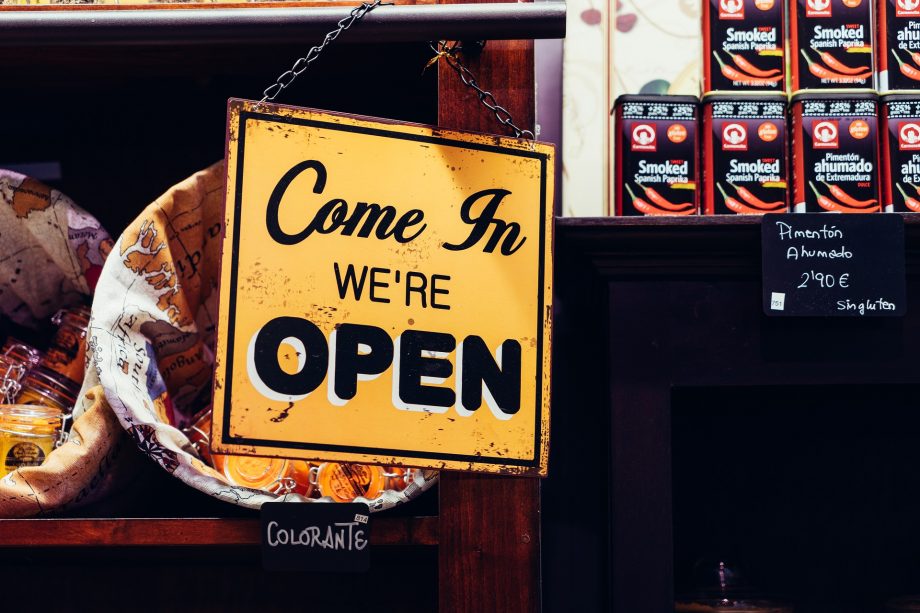“When you buy from a family owned business, you are not helping a CEO buy a third vacation home. You are helping a little girl get dance lessons, a little boy get his team jersey, a mom or dad put food on the table, a family pay a mortgage, or a student pay for college. Our customers are our shareholders, and they are the ones we strive to make happy”.
These words that are branded onto the brain of almost any user of social media, originating from a sign in the window of a local ‘mom and pop’ shop in the USA and becoming one of the most oft-shared memes on the web. It’s a noble sentiment, but is it factually accurate?
Small businesses may not share the glamour of international corporations, but they rely on your custom more than any chain brand. Imagine you’re taking a stroll down the high street of any major city, and you’re seeking an injection of caffeine to power through the remainder of your shopping trip. You’ll find the usual suspects on every corner – there’s no need to name names, but it’s safe to assume that unless you live in an area considered a National Park and protected from the gentrification of chains, every one of them will have a horde of happy, smiling trained baristas ready and waiting to produce your grand low-fat cinnamon latte with almond milk.
These sights are omnipresent, as much a part of the high street landscape as parking meters, harassed-looking parents and taxi ranks. You’ll probably also see a small, independent coffee shop or tearoom, serving lovingly home-baked snacks. If you choose to stop here, you are putting your hard earned back into the pocket of the owner of this business; helping them recoup the costs of their production, pay the wages of their staff, cover their electricity bills, repay the loan they may well have taken out to launch their business. Every customer that declines to stop at this café is depriving them of a sale. Unlike a franchise, there is not another branch fifty yards down the road to make up the shortfall with another customer.
Despite the prominent appearance of these chains, especially in major cities, small businesses actually make up 99% of the 5m+ registered businesses in the UK, and account for 48% of all private employment. As a result, these companies have a huge impact on our lives and those of our families – perhaps more than we realise.
The number of small businesses has swelled since the recession, despite the increased difficulty in obtaining finance – only half of all start-up applications are approved. These hardy entrepreneurs are officially celebrated once a year on Small Business Saturday, an initiative kickstarted by American Express back in 2010, but there are a multitude of reasons why they should be utilised all year around.
Let’s go back to that opening quote.
“Our customers are our shareholders, and they are the ones we strive to make happy”.
Every business would say the same, but it’s only those with a hands-on relationship with their customers that can say so with their hand on heart. Anybody can Google a CEO’s email address to complain about their treatment at the hands of a corporate giant, and that approach may even yield results, but ultimately we are all just lines on a spreadsheet to these companies. Like the hydra, if they lose our custom then many more consumers are waiting in line to take our place.
For a small business, however, upsetting a customer could be the difference between a day’s pay for a staff member, and bad feedback can be hugely harmful. For a small business, especially in the age of social media, bad PR can be devastating, both in terms of the bottom line and psychologically. This knowledge, coupled with a pride in a business built from the ground up through blood, sweat, tears and passion, will make a small company more determined than ever to keep their customers happy. There´s nowhere to hide for bad businesses anymore. In our socially connected world good businesses get rewarded with more business and bad ones eventually die. For small business especially it is that much more important to excel.
Of course, there is an elephant in the room; the services of small businesses are sometimes costlier that their corporate counterparts. Small businesses do not have the benefits of economies of scale and the massive buying power of major corporations. Small businesses are generally much less flexible when it comes to taxation, they simply cannot afford high priced tax lawyers and tax friendly setups that are more frequently enjoyed by major corporations. Another way of looking at things is that a small business may not share some of the same overheads such as national advertising and propping up underperforming sites elsewhere. If a small business charges a little more for a service than a corporate rival, there might be a good reason for this. This is just something to bear in mind when weighing up a purchase. Sometimes it´s worth paying that little bit more for better quality and a personal service.
Prime Minister Theresa May described small businesses as “the backbone of the UK” in a 2016 speech, and promised to do all she can to provide support to this essential institution of the economy. If we all agree to join her in doing our part, we can create a fairer society, rewarded those with the vision and determination to work hard and make a success of themselves, and benefit from a personal and customised service in the meantime. What’s not to love about that?


